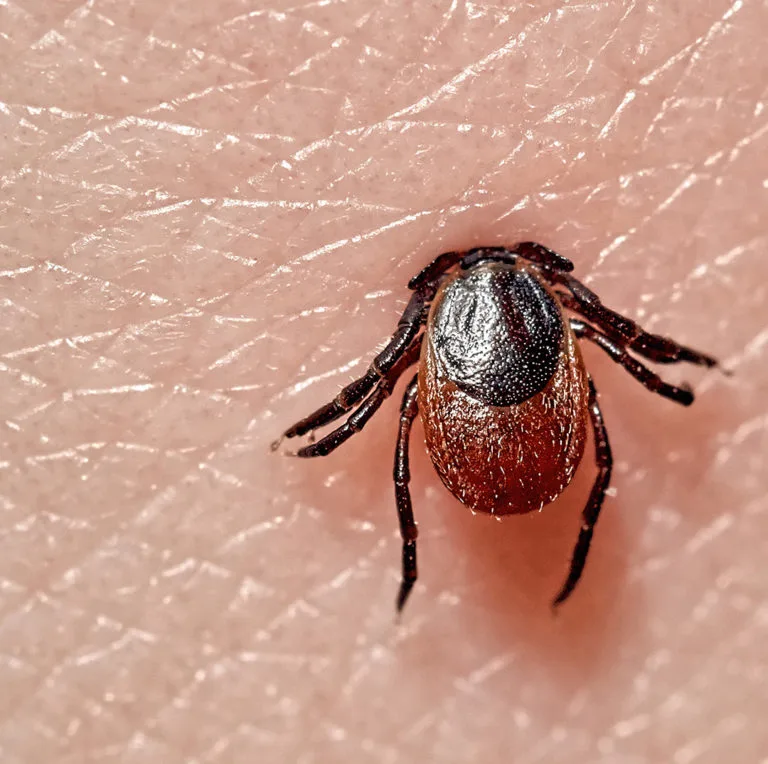Time spent outdoors puts you in possible contact with ticks, parasitic pests that plague humans and pets. Although bites from these blood-sucking bugs are often harmless, some cause allergic reactions, while others may transmit dangerous diseases, like Lyme. Here’s what you need to know to prevent tick bites.
What You Need to Know to Prevent Tick Bites
To prevent tick bites and avoid diseases they may carry, it’s important to recognize these parasites. The black legged tick (often responsible for carrying Lyme disease) is an eight-legged creature with a dark brown-to-black body that’s oval and flat. These little pests usually measure up to 1/8 of an inch as adults. They take their nourishment from humans and animals by lingering in tall grasses and shrubs, waiting for a victim to pass closely by, and then latch on. Once aboard the host, a tick punctures the skin and feeds on blood.
Signs and Symptoms
Most tick bites are harmless, however, it’s possible to get an allergic reaction to them. Often, symptoms include swelling, a rash, or blistering. Shortness of breath can occur if the allergy is very serious. Some ticks carry diseases that they transmit to the host when feeding. It’s sometimes easy to identify a tick bite, because the culprit remains at the bite site to feed a while.
Get medical attention immediately if you have a reaction. Also, see a doctor if the following symptoms of a transmitted disease occur: rash, aches (especially in the neck or joints), headache, nausea, swollen lymph nodes, or a fever. These possible symptoms occur anywhere from a couple of days to several weeks after the bite.
Tips to Prevent Tick Bites
Always apply tick repellent when your are working in the yard or heading into the woods. Products that include the ingredient DEET work best. When hiking, stay on the path and out of tall grasses and weeds. Treat the clothes you wear with a product that contains permethrin, and wear long sleeves and pants (tucked into boots preferably). At the end of your hike or outing, completely check your hair, clothes, and body for ticks. Be sure to check in warm areas where these pests hide like under the arms, in the hair, and around the groin area.
Ticks access your home via your pet. They easily tag onto fur for a free ride inside. Protect your pets with an anti-tick product, but consult your vet first to find out what’s best for your furry friend. After a walk or after your dog roams anywhere freely, check him over before taking him indoors.
We Can Help Prevent Pests
Tick-borne diseases may be as close as your backyard. Contact a specialist today. Call Free Spray Lawn Care at 419-529-5296 to help prevent tick bites from affecting your family and furry friends. We’ll take care of tall grasses, piles of leaves, and overgrown shrubs to eliminate environments where pests thrive.



Comments (0)
Thanks for your comment!
Thanks for your feedback! Your comments have been successfully submitted! Please note, all comments require admin approval prior to display.
Error submitting comment!
There is a problem with your comment, please see below and try again.